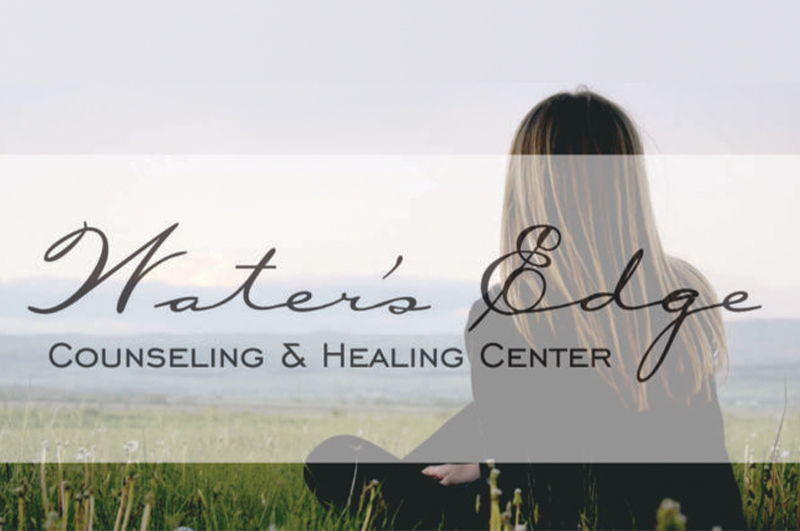We are well aware of the many high quality options for eating disorder care here in Minnesota. Making the decision to reach out to receive care can be hard and vulnerable in itself, let alone navigating the options and getting a sense for what place would be best for you.
First, when seeking out care for eating disorders, it’s important to find a clinic that knows and understands how to asses and treat the complexities and variety of eating disorders symptoms. Water’s Edge CHC has been specializing in eating disorders since we began as our founder’s private practice in 2003. We now have many highly trained, experienced and educated therapists and dietitians who specialize in treating eating disorders. We prioritize continued education as a team to stay in alignment with the advancing research on assessing and treating of symptoms. Many of our providers hold specific certification or training in eating disorders such as CBT-E (Cognitive Behavioral Therapy-Enhanced for eating disorders) and Family Based Therapy for eating disorders. Experience and expertise is a strength of ours.
Second, it’s important to find a good fit for you–a place you feel safe, accepted, and able to move toward healing. Below, we took a moment to share a few additional strengths of Water’s Edge CHC that we believe set us apart and may help you find what you are looking for.
We value relationship.
One of our greatest priorities is cultivating a meaningful relationship with you. Research shows again and again, that one of the most important components of successful treatment outcomes is that of therapeutic alliance. Simply put, therapeutic alliance is the trust between you and your therapist that allows you to work together effectively.
We genuinely want you to feel welcomed, supported, and accepted as we aim to instill trust from the moment we meet. We are aware for many, safety and trust can take time. Your therapist will work with you to aid in your ability to communicate needs and establish a sense of being heard and honored. WECHC also takes great consideration and care in connecting you with a therapist that is the best fit for your personality, and the individual needs and issues for which you are seeking help. It is our hope that you have a relationship that encompasses what psychological pioneer Carl Rogers identified as essential for alliance, a spirit of collaboration, an emotional bond and agreement on your goals and path to healing.
We treat more than your Eating Disorder.
There is a high occurrence of co-occurring disorders with those who have eating disorders. Meaning that many will simultaneously be struggling with another mental health diagnosis alongside their eating disorder symptoms. Research shows that 50-75% of those with eating disorders will also experience depression, 66% will struggle with one or more anxiety disorders in their lifetime and 1 in 4 people with eating disorders will also have symptoms of trauma or PTSD (NEDA). Knowing this, not only do we specialize in Eating Disorders, we also offer specialized services in these high prevalence co-occurring disorders; anxiety, depression and trauma.
While treating Eating Disorders has been and continues to be the heart of WECHC, we know the reality of the statistics listed above and the need for comprehensive care. We make sure our intensive outpatient programs, groups and individual therapy reflect the layered complexities of co-occurring disorders. We are able to address multiple diagnoses given our diverse training and diverse team of therapists, medication providers and dietitians. By combining our areas of expertise with the unique ability to integrate skills, modalities and techniques we are able to address issues as they arise in a collaborative cooperative way. With our training and genuine curiosities about behavior patterns, symptoms and beliefs, our team is able to provide holistic care aimed to help you reclaim your life from complex co-occurring disorders.
We care about your spirit.
As many as 83% of Americans believe their spiritual faith & beliefs are tied to their state of mental health. Research supports this belief with findings that suggest a strong tie between prayer and forgiveness with resilience in times of crisis. Water’s Edge CHC recognizes the research that spiritual connectedness aids in healing and strengthens coping skills. Spirituality is part of our whole-person approach to care, so our team is trained with the resources to help integrate your spiritual beliefs as you desire.
There is a specific track of care for individuals whose beliefs align with Christianity. Christian integration often instills hope that has been lost, infuses truth of identity, increases the ability to cope, initiates connection with God and ignites a life of prayer, praise and worship. This can often bring a greater sense of meaning to the healing process and is a vital aspect of recovery.
Incorporating Christian integration is not required when receiving care at WECHC. It is only provided at your request. Our providers work with people of all faith backgrounds as well as individuals without a defined faith system. We strive to provide effective, lasting, holistic are that is uniquely suited for you and your family.
We offer trauma-informed care.
What does this even mean? Or what does it actually look like in practice? And why is that important in eating disorder treatment?
Let’s start with defining trauma. Trauma is the result of an event or events that are perceived as so powerful that the person experiencing them feels a threat to their physical or psychological well-being. Trauma is ultimately defined by the impact the event has on the individuals’ daily living experience, not by the event(s) itself. Experiencing trauma doesn’t automatically mean there is a diagnosis of PTSD either, the impacts of trauma can manifest in many diagnoses such as depression, anxiety, bipolar and personality disorders to name a few. Research indicates that 1 in 4 people with an eating disorder have symptoms of PTSD or trauma (NEDA), so knowledge in the treatment of both is critical for lasting recovery.
Perhaps obviously, trauma-informed care does mean the majority of us at WECHC are trained in trauma techniques and therapeutic modalities such as EMDR, Sensorimotor and Trauma Focused CBT, many of which are evidenced based… but for us, it runs deeper than that. It is a key aspect that sets us apart and makes us unique.
Our whole approach to therapy rests on a foundation and understanding that our stories and the meaning we’ve applied to them impact us profoundly–our psychology (mind will and emotions), our relationships and attachment patterns, our bodies, and our spirit. This impact often overwhelms our ability to healthily cope and our whole being forms around the conclusions made. The techniques and modalities we’ve trained in and integrated in our care at WECHC not only help us to begin unstitching those limiting beliefs, they’ve also taught us the importance of creating a safe place. We cultivate safety, foster a sense of belonging, hold a culture of honor, non-judgment and patience with your process. A way we do this is by placing high value on an environment that understands and responds well to symptoms such as flashbacks, hyper-vigilance and dissociation while at the same time honoring the unique needs of each individual. This ability, held alongside our knowledge that working within (with desire to expand) a person’s tolerance for emotion and distress is not only grounding, it is how healing begins. These aspects of trauma-informed care play an integral role in our approach to your journey.
Not only do we establishing safety and belonging through our knowledge and expertise, we also do this by paying specific attention to our physical space. Learn more about this atmosphere here or watch this video.
Reclaim your life, we can help.
Offering trauma-informed care, valuing relationship, treating more than eating disorders and caring for your spirit are just a few of the things that set Water’s Edge CHC apart, take a look for yourself. Find out more by browsing our website or contact us.
Our team of compassionate professionals knows that each individual is unique and so is their journey. Regardless of where you are in your journey, we are dedicated to walking with you on your way to recovery.






